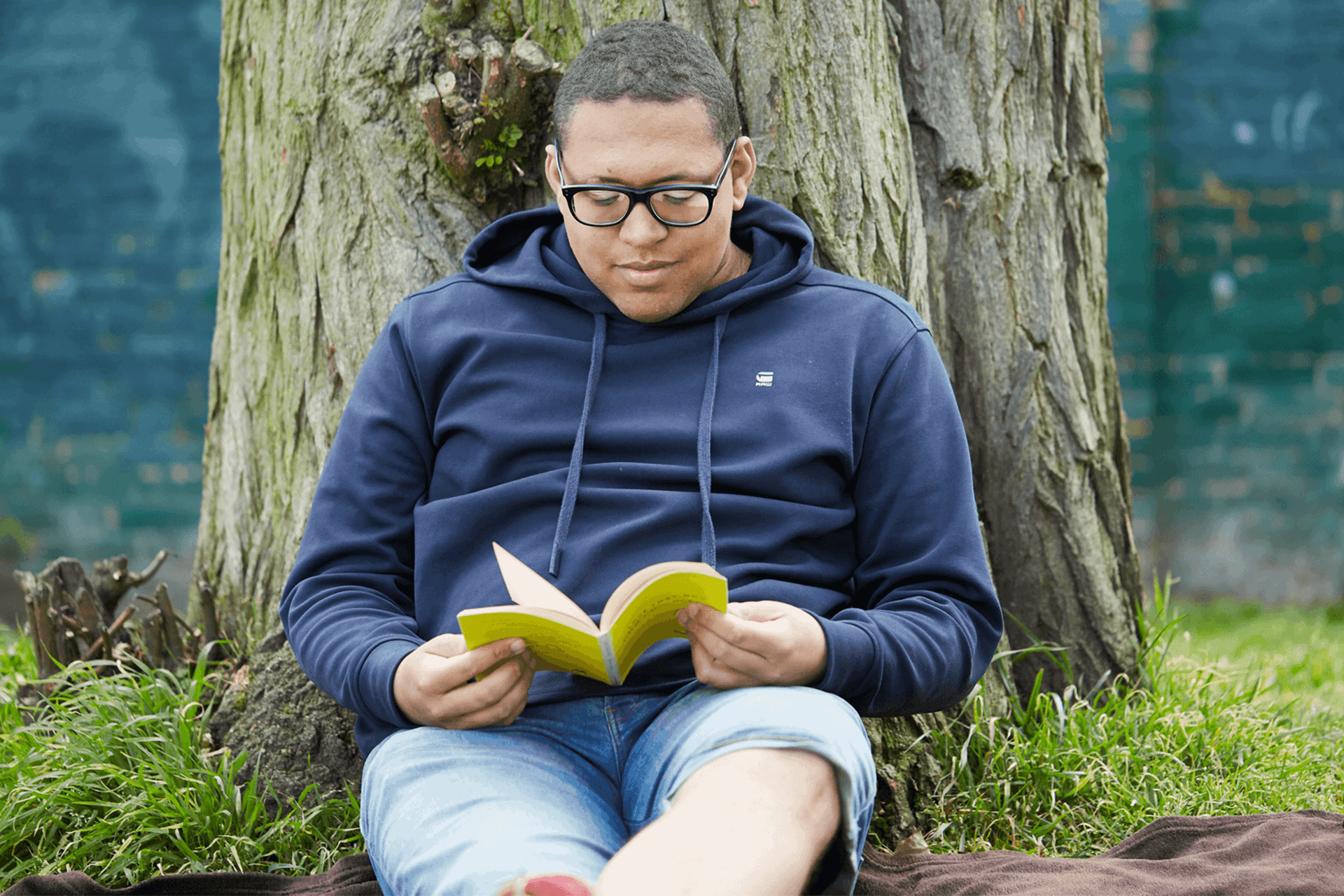Topics mentioned: Muslim mental health, self-care guide for young Muslims
About: Our guest blogger shares three lessons from the story of Maryam in the Qur’an and how they inspired her mental health self-care plan.
This blog contains references to suicidal feelings. Please do not read on if you think the content may be triggering for you. If you are currently struggling with your mental health, please visit our find help page for information, advice and guidance on where to get support.
For me, Maryam in the Qur’an is the ultimate strong woman, devout and determined.
There’s a chapter in the Qur’an named after Maryam, (known as Mary in the Bible), mother of Jesus. When I feel frustrated, weak, depressed or stuck, I find myself turning to this chapter. There are so many things I love in this chapter, but I’m just going to focus on three lessons I apply to my life daily.
The story of Maryam
For me, Maryam in the Qur’an is the ultimate strong woman, devout and determined. Islamic sources narrate that she defies all the holy men in the temple by refusing to stay out of their way and play the traditional female gender role they expect from her.
What’s good enough for men is good enough for her and nothing less. Even though she is young, she won’t compromise her dignity or her beliefs for anyone. She does her own thing regardless. But it’s not easy.
Eventually, she secludes herself from all the haters and literally puts up a curtain to block them out. Then, the Qur’an tells us, the angel Gabriel appears and unexpectedly tells her she is to going to have a son.
The irony of being judged by people who don’t really know you always hits me hard.
Now what? What will people say? What will they think? Who is going to understand? Who will believe her? What if she is shunned and has to live as a total outcast? She withdraws to a remote place, presumably to avoid society’s harsh, misogynistic judgement about her situation – a situation they know nothing about.
The irony of being judged by people who don’t really know you always hits me hard. The fear of what people will think of me as a Muslim woman cuts both ways – when I’m not ‘Muslim enough’ for my family, or when I’m ‘way too oddball Muslim’ for my friends.
When I read this, I think about how much time and energy I used to spend just trying to hide different parts of myself from everybody. Parts of myself I wish I had been able to be proud of, parts of me I’ve had to negotiate with and nourish in a way my non-Muslim friends never had to struggle with.
Discovering this verse healed so much guilt and shame I carried from all the times I felt like I was a bad Muslim.
Maryam is pregnant and alone. Unlike in the Bible, there is no Joseph to comfort her. There is no inn. No stable. There are no three wise kings bearing gifts. Nothing. She is desperately alone.
When the childbirth begins, Maryam, a single young woman, in the worst pain of her life, begins to despair. The Qur’an says:
And the pains of childbirth drove her to the trunk of a palm tree. She said, 'Oh, I wish I had died before this and was in oblivion, forgotten.'
It’s easy to miss this line, and it annoys me how many times I have seen religious scholars gloss over Mary’s words. I’ve found Muslim ‘scholars’ dismiss the idea that a human being who is so close to God, could dare to think this type of lonely and desperate thought. So they gloss over it.
But God does not gloss over it. God chose to record Mary’s words in this book of guidance, as a lesson for all humanity. It reminds me that God sees our pain. Even when other people want to sweep it under the rug, God doesn’t.
Even if the world around you – society, religious figures, family – want to decide how you feel on your behalf. God knows. Discovering this verse healed so much guilt and shame I carried from all the times I felt like I was a bad Muslim and a bad person for wishing I was dead.
But the story does not end there. It goes on:
But he called her from below her, 'Do not grieve; your Lord has provided beneath you a stream. And shake toward you the trunk of the palm tree; it will drop upon you ripe, fresh dates. So eat and drink and be consoled. And if you see anyone from among humanity, say, "Indeed, I have vowed to the Most Merciful, so I shall not speak to any human today."'
In the midst of her despair, God responds in three ways:
From nowhere, a voice calling out: Do not grieve. We all need to hear this. We all need someone to tell us it’s going to be ok. Some say the voice is from the angel Gabriel who suddenly appears to comfort her then offer advice, but some say the voice is a miracle – the voice of the baby she birthed.
Just shake the tree trunk. Again, if you’re not paying attention, you might miss this little detail. But in the Qur’an, I always find, it’s the little details that change my life. To me it means, when you’re at your absolute worst, you still have make some effort to change your situation – even if it’s a small one.
God could have simply commanded the dates to fall off the tree. Or suddenly appear in Maryam’s hand. Or sent the angel Gabriel with a plate of food. But God didn’t do that. Why not? I reckon God is showing us – look, I know you’re hurting, but the things you need aren’t as far away as they seem, come on, don’t give up yet, just take a little step and you’ll see.
It reminds me of the famous reported saying of the Prophet Muhammad (pbuh):
God says: if you take one step towards me, I will take ten steps towards you. If you walk towards me I will run towards you.
When she goes to the town and meets her people, she must tell them she has vowed a fast of silence. When she goes back to her people they are aghast – she has come back unmarried, with a baby! They question her.
She does not speak. Then from her arms, a miracle happens. The newborn baby Jesus speaks:
Indeed, I am the servant of Allah. He has given me the Scripture and made me a prophet. And He has made me blessed wherever I am and has enjoined upon me prayer and almsgiving as long as I remain alive…
The way I read it, Mary was being told not to waste her breath on her critics, save her energy, and focus on her own peace. She didn’t need to defend herself. She had not done anything wrong.
Ultimately, the truth speaks for itself – in this case literally! The miracle of her baby speaking vindicated her.
To me, it is significant that God draws this part of the story to a close right here. We never find out how the people respond to this stunning miracle.
Do they believe Mary’s innocence? Do they still give her a hard time? Do they believe the miracle or think it’s a trick? God doesn’t tell us, and I believe it’s because God is literally showing us that the answer to the question but what do other people think? actually doesn’t matter.
What matters is you. What do you believe? Are you open-minded, or are you judgey? Are you committed to your personal truth, and God, or to what other people want instead?
My mental health self-care plan, based on God’s interaction with Maryam
-
Get emotional support
Text a friend, reach for the Qur’an, or whatever makes you feel comforted. Especially if you feel desperate and lonely, it’s ok to be vulnerable and let someone console you. You deserve to be loved. Even if you feel worthless or weak.
-
Take one small action
Shake your date tree! Figure out what help is closest to you and take a step towards it. Or figure out one small thing you need most to look after your wellbeing and take one small action. It could be as simple as cleaning your room, or making sure you’ve eaten properly. But when I take one small step towards looking after myself, it makes the next step a little bit easier. Then the next. Then the next…
-
Decide what you want and go for it
So what if I defy people’s expectations? Isn’t that what Maryam did? Didn’t God love Maryam because she chose to live her truth to the fullest? Keep faith, in yourself and in God, and do what you want, not what other people want. I always ask myself, does what other people think matter more to me than what God thinks? The answer is always no. As long as my intentions are good, and I’m doing my best, I’m on the right track. My best is good enough. So I don’t worry about pleasing others, and let God take care of the rest.
Listen to this soothing recitation of Surah Maryam.
More information and advice
We have tips and advice to help you find the support you need. Take a look at our guides.
Where to get help
However you're feeling, there are people who can help you if you are struggling. Here are some services that can support you.
-
Muslim Youth Helpline
Provides faith and culturally sensitive support for young Muslims.
Online chat service available during opening hours.
- Opening times:
- 4pm - 10pm, 365 days a year
-
Samaritans
Whatever you're going through, you can contact the Samaritans for support. N.B. This is a listening service and does not offer advice or intervention.
- Opening times:
- 24/7






